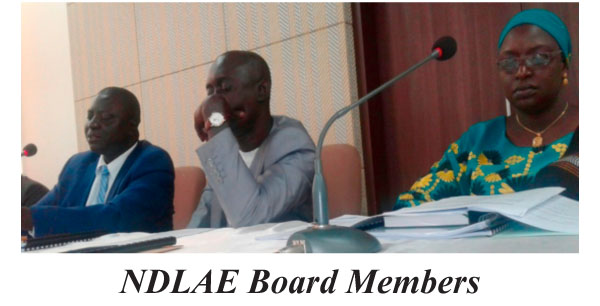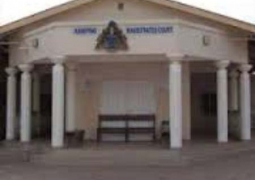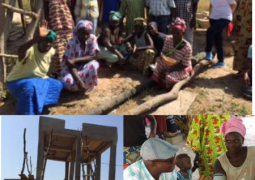
Presenting the annual activity report before deputies, the Director General of (NDLEA), Bakary Gassama, said the adverse impacts of drug abuse and trafficking in The Gambia is most evident on the youth population.
“We have experienced an increase in the number of mental illnesses caused by drug abuse. According to data received from Tanka-Tanka Psychiatric Hospital, many youths are currently diagnosed to be suffering from various drug-related illnesses,” he said.
“This impact manifests itself in many ways, some of which may not be ordinarily visible due to the clandestine manner in which illicit drugs find its way into society.”
He said the stigma associated with drug use had made it challenging to articulate the full extent and nature of the harm caused by illicit drugs.
However, he stated, it was “safe to state that drug control requires the combined efforts” of all law enforcement agencies, government institutions, civil society, the media and the general public to meet the numerous challenges posed to society by illicit drugs.
He added: “It goes without saying that the use of illicit drugs exposes non-users to injury and death; this arises from a range of factors such as people driving under the influence of drugs, significant financial pressure on the families of drug addicts due to the costs association with theft from the family, legal fees and the high costs of treatment.”
The emotional and psychological impact on families and the high levels of crime and other social ills have left many communities “under siege”, he said further.
Mr Gassama also told the committee that more recently, it was reported that drug use in the West Africa region had increased.
Experts have highlighted the human security threats posed by drug trafficking, for which institutions and policymakers should be prepared to respond to, he added.
He said one of the main challenges is the fact that the predominant approach to drug trafficking in region had been based on the international narcotics control regime, which is centered on stemming the supply of drugs through law enforcement efforts.
“Limited focus has been placed on the health and developmental effects of drug trafficking, which over time could constitute a greater security threat to West Africa than currently acknowledged, therefore, the need to establish rehabilitation centres to facilitate the rehabilitation and reintegration of victims of drug abuse back in society after serving their jail terms,” Mr Gasama said.
In 2013, he added, a total of three hundred and fifty-eight (358) cases of drugs were registered involving three hundred and sixty-six (366) persons of different nationalities, whilst in 2014, four hundred and two (402) cases were registered involving four hundred and twenty-four (424) persons of different nationalities.
“Our records reveal that most of the persons arrested with illicit drugs, particularly cannabis, are Gambians. However, quite a lot of foreign nationals are involved in the abuse and trafficking of hard drugs,” said Gassama.
The NDLEA is expected to report back to the National Assembly today for the consideration of their annual activity report and audited financial statement.



